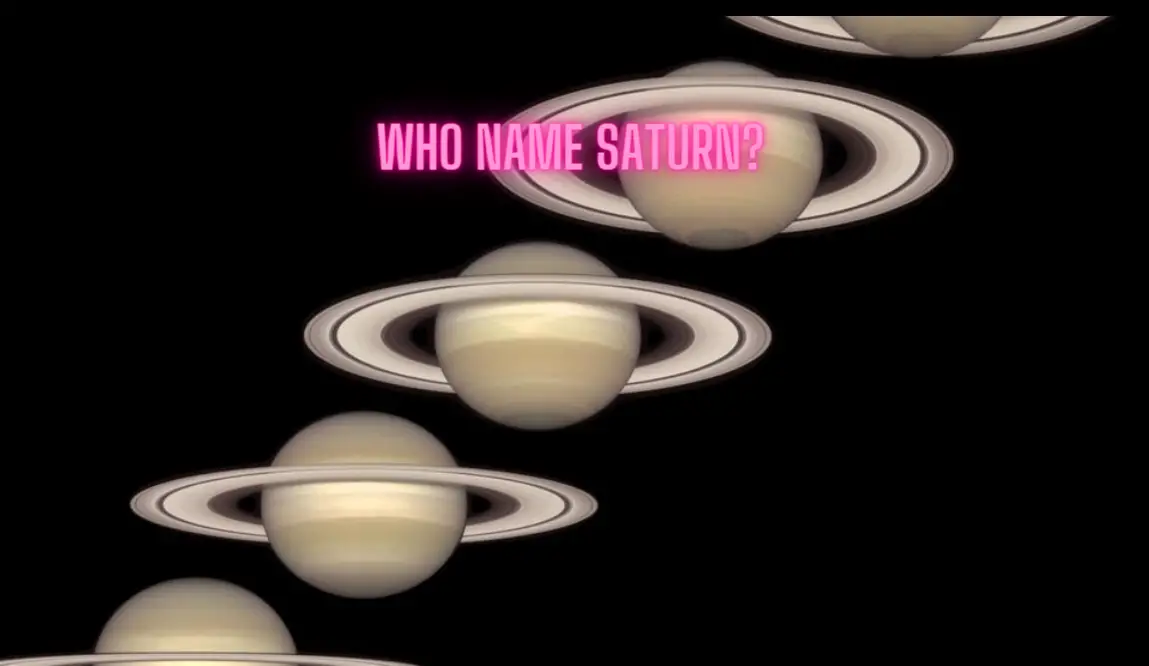Saturn, the majestic ringed planet that mesmerizes both astronomers and casual stargazers alike, has, for a very long time, been a source of wonder and intrigue. But have you ever given any thought to the origin of the name given to this astronomical body? The origin of the term “Saturn” is a fascinating narrative that takes place in ages long ago and takes us back in history.
There is evidence that ancient civilizations and their respective mythology were responsible for naming the planets that make up our solar system. In the case of Saturn, its name may be traced back to the Romans and the deep well of mythology that they possessed. The Romans were great watchers of the night sky and had a pantheon of gods and goddesses linked with numerous celestial bodies. In addition, they developed a religion based on the worship of these deities.
Saturn was a god in Roman mythology who was associated with agriculture and harvesting. He was typically portrayed as an elderly man with a long, gray beard. It is believed that he was the biological father of Jupiter, the ruler of the gods, and that he governed during the mythological Golden Age, which was characterized by widespread prosperity and relative tranquility. Additionally, the planet that we now know to be Saturn was given the name Saturn in ancient times.
The word “Saturn” comes from the Latin word “Saturnus,” which is believed to have arisen from the Etruscan civilisation. The name “Saturn” itself comes from the Latin word “Saturn.” The Etruscans were a prehistoric people who lived in what is now the Italian area of Etruria. Their civilisation existed before to that of the Romans. They worshiped their own gods, one of them was called Satre, and they had their own pantheon.
After first making contact with the Etruscans, the Romans began to adopt many of the Etruscans’ cultural and religious customs, including their gods and goddesses. The ancient Etruscan god Satre was finally translated into Latin as Saturnus, and that name was given to the planet that we now refer to as Saturn.
It is important to remember that the Romans were not the first people to connect the god Saturn with the planet Saturn; other cultures did so as well. The ancient Greeks, who developed their own mythology over time, also connected the planet with one of their deities in their mythology. Saturn was associated with the god Cronus in Greek mythology. Cronus ruled during a period of peace and prosperity that was analogous to the reign of Saturn in Roman mythology. The ancient Greeks called the planet “Kronos,” which is the same as the Roman name Saturn.
In ages past, it was customary practice to name heavenly bodies after individuals from mythology. This was done rather frequently. It was a means for the gods and goddesses of a civilisation to be honored and revered by the people of that society. The Romans and the Greeks each had a cherished deity, and by linking the planet Saturn with that deity, they ensured that the significance and symbolism of Saturn would be passed down through their cultures.
The term “Saturn” has gained widespread recognition and acceptance as the official designation for the sixth planet in order of distance from the Sun in modern times. “Saturn” Discoveries made by astronomers concerning Saturn, including as its amazing ring system and several moons, have significantly contributed to our growing knowledge of the solar system and its components.
Therefore, the next time you look up into the night sky and see the gorgeous rings of Saturn, remember the ancient civilizations that gazed up at the same sight and bestowed this celestial wonder with the name that has endured throughout the ages. The Romans, who were influenced by the Etruscans, and the Greeks each had a hand in naming the planet after their own gods, and they did it independently of one another. It is a very unique and evocative name for a planet that is so awe-inspiring because the word “Saturn” brings with it centuries of mythology, history, and human interest. Saturn is the largest planet in the solar system.
![]()
